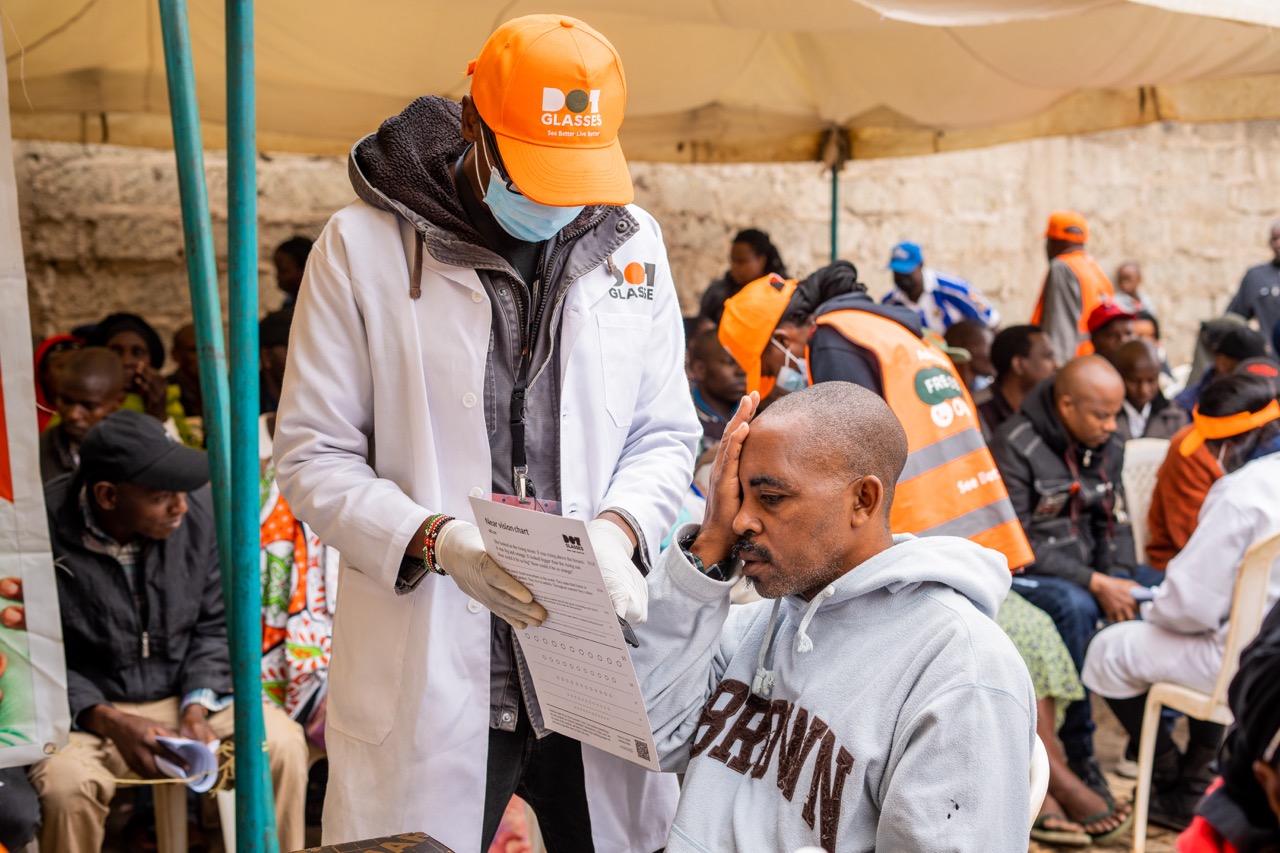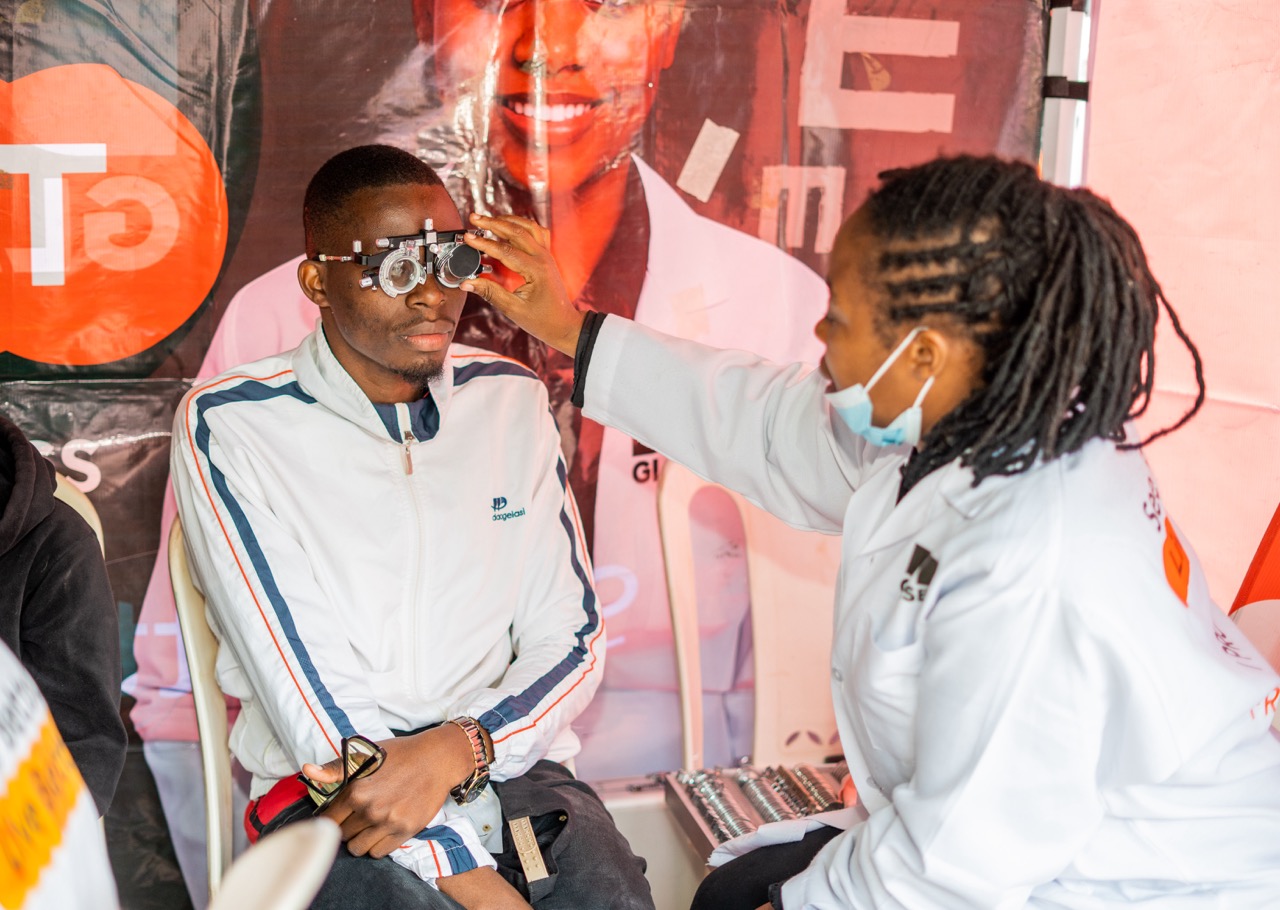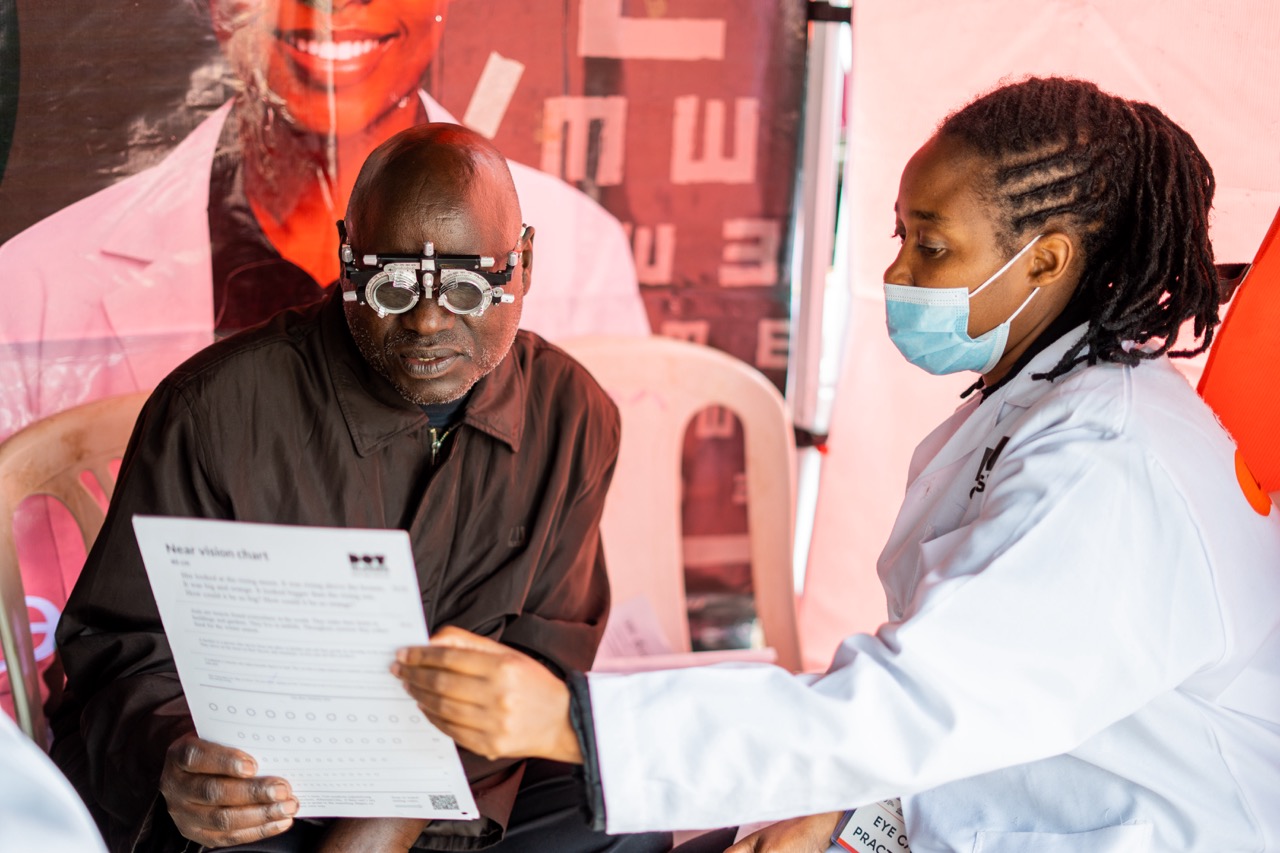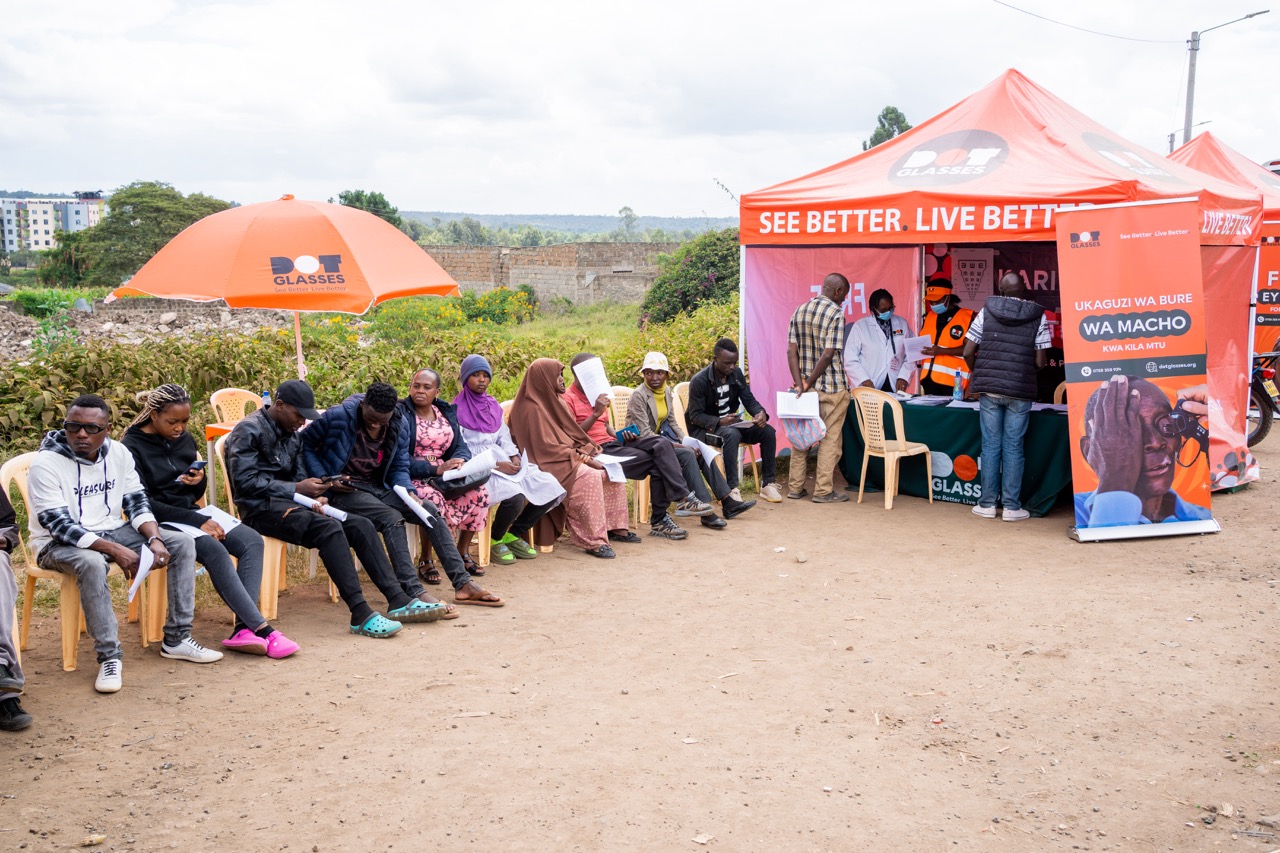New Study Aims to Transform Eye Care Accessibility in Kenya and Beyond.
A new research study is underway to evaluate an innovative, low-cost eyeglass distribution model that could significantly expand access to vision care in underserved communities across Kenya and beyond. This study conducted in collaboration with Dot Glasses is part of the UK International Development-funded #AT2030Programme, delivered in partnership with Senses Hub. It aims to generate critical academic evidence to support the long-term scalability and sustainability of the Dot Glasses model.
During the study, over 1600 people were screened in over 5 locations around Nairobi over a period of 5 weeks.
In Kenya, approximately 3.5 million people are affected by visual impairments that could be corrected with a basic pair of prescription glasses. Yet, access remains limited due to a shortage of trained eye care specialists, inaccessibility of clinics, and the high cost of conventional eyeglasses.
Dot Glasses, a social enterprise operating in Kenya and seven other countries across Africa and Asia, has pioneered a simplified method for vision testing and eyeglass distribution that can be implemented by non-eye-care specialists. This approach dramatically reduces costs and increases reach but has not yet been scientifically compared to the traditional “gold standard” of eye testing: full refraction using a trial lens set conducted by trained professionals.
To quantify the differences between eye testing methods in visual acuity achieved and lens power selected, participants will undergo vision assessments using both the Dot Glasses approach and full refraction. User satisfaction and the impact on daily life will then be compared using follow-up data collected after two months of use of glasses selected through each method.
“This study is critical to understanding how we can scale up access to eyeglasses for millions of people who are currently excluded from eyecare,” said the research team. “If successful, it could inform new, more inclusive service delivery models for vision care in low-resource settings.”
Globally, more than 1 billion people live with preventable or uncorrected vision impairment, mostly caused by refractive errors such as near- or far-sightedness. While correctable with a simple pair of lenses, many individuals, especially in rural or underserved areas, lack the means to access testing and affordable eyewear.
The results of this study could have wide-reaching implications, not only for improving eye care in Kenya but also in countries like Uganda, Ethiopia, Somalia, Tanzania, Rwanda, Nepal, and Nigeria where Dot Glasses is already operating. In addition to informing health policy and programming, the findings will contribute to broader academic discourse on low-cost, scalable models for inclusive eye health.
By assessing both clinical outcomes and real-world user experiences, this study seeks to determine whether community-based, simplified testing approaches can stand as credible alternatives to conventional eye care, bringing clearer vision within reach for millions.
Below are snippets of the teams doing research.



